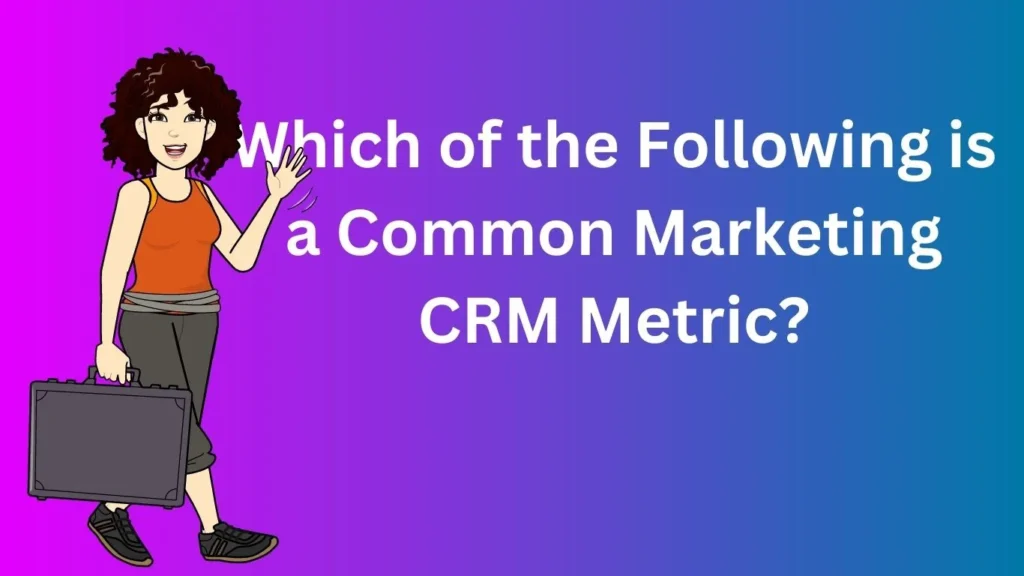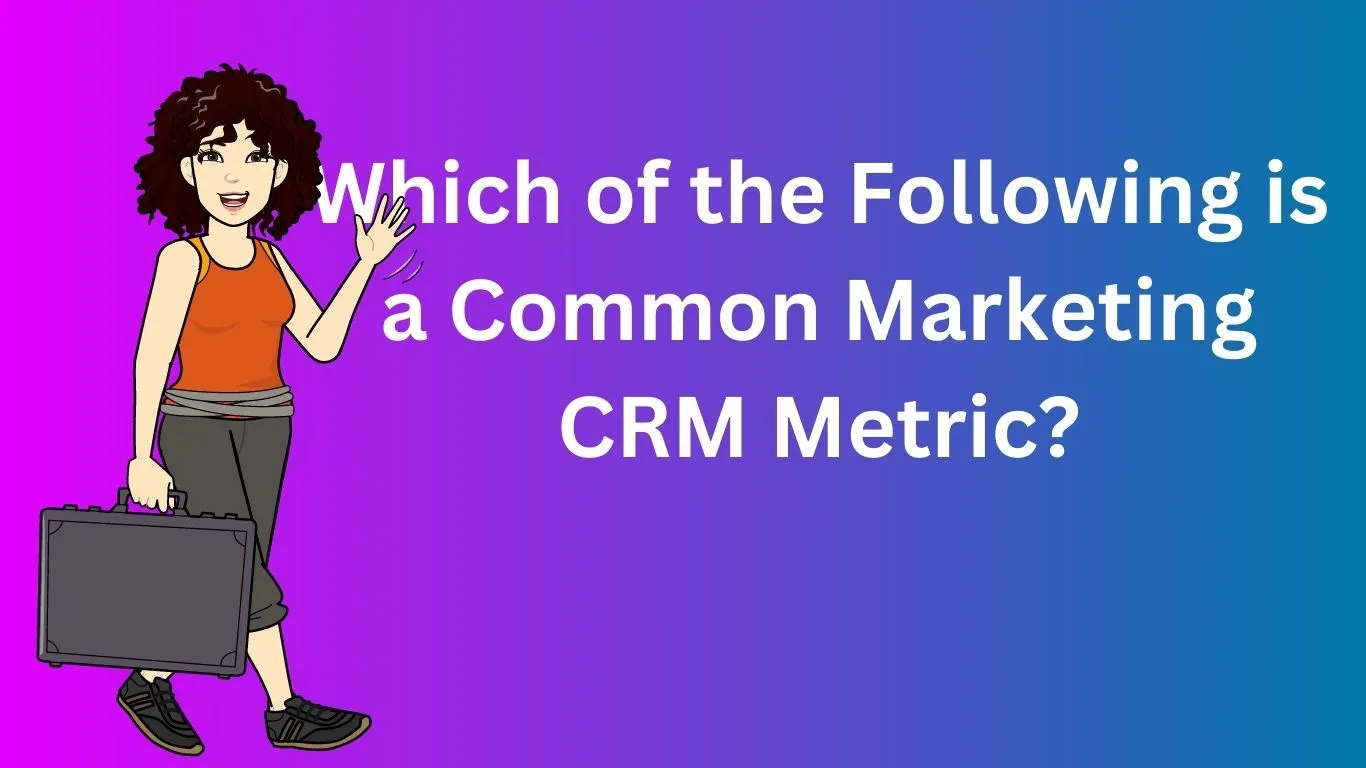In the fast-paced world of business, Customer Relationship Management (CRM) has become an essential tool for companies looking to manage and enhance their interactions with customers. CRM helps businesses build better relationships, improve customer satisfaction, and drive growth. In this article, we will delve into two important questions related to CRM: common marketing CRM metrics and operational CRM technologies used by marketing departments.
Which of the Following is a Common Marketing CRM Metric?
Measuring the effectiveness of your marketing efforts is crucial for understanding how well you’re connecting with your audience and achieving your business goals. Several metrics can help you evaluate the success of your marketing campaigns within a CRM framework. One common marketing CRM metric is:

1. Customer Acquisition Cost (CAC)
Customer Acquisition Cost (CAC) is a fundamental metric that indicates how much it costs your company to acquire a new customer. To calculate CAC, add up all the costs associated with marketing and sales efforts (such as advertising, salaries, software, etc.) over a specific period and divide that by the number of new customers acquired during the same period. CAC helps businesses understand the efficiency of their marketing strategies in terms of cost-effectiveness.
Which of the Following Operational CRM Technologies Does the Marketing Department Typically Use?
Operational CRM technologies focus on automating and streamlining various business processes to enhance customer interactions and satisfaction. Within the marketing department, several operational CRM technologies are commonly used to optimize processes and improve customer engagement. Some of these technologies include:
1. Marketing Automation Software
Marketing automation software allows marketers to automate repetitive tasks such as email marketing, lead nurturing, and social media posting. This technology enables marketers to deliver personalized content to different segments of their audience, based on user behavior and preferences. By automating these processes, marketing teams can save time and ensure consistent and targeted communication with customers.
2. Customer Data Management Systems
Customer data management systems store and organize customer information in a centralized database. This technology gives marketing teams a holistic view of each customer’s interactions and behaviors, enabling them to create more personalized and relevant marketing campaigns. With accurate and up-to-date customer data, marketers can tailor their strategies to meet the specific needs and preferences of their audience.
3. Email Marketing Platforms
Email marketing remains a powerful tool for reaching customers directly. Email marketing platforms allow marketing teams to design visually appealing emails, segment their email lists, and track open rates and click-through rates. By analyzing these metrics, marketers can assess the effectiveness of their email campaigns and make data-driven improvements.
4. Social Media Management Tools
Social media management tools help marketing departments manage and schedule posts across various social media platforms. These tools often come with features like content scheduling, social listening, and performance analytics. By analyzing engagement metrics, marketers can understand which content resonates with their audience and refine their social media strategies accordingly.
Conclusion
In the realm of Customer Relationship Management, marketing plays a vital role in connecting with customers and driving business growth. Understanding common marketing CRM metrics, such as Customer Acquisition Cost (CAC), allows businesses to assess the efficiency of their marketing efforts. Operational CRM technologies like marketing automation software, customer data management systems, email marketing platforms, and social media management tools empower marketing departments to streamline processes, deliver personalized content, and engage with customers effectively. By harnessing these tools and metrics, businesses can forge stronger relationships with customers and achieve their marketing objectives.

